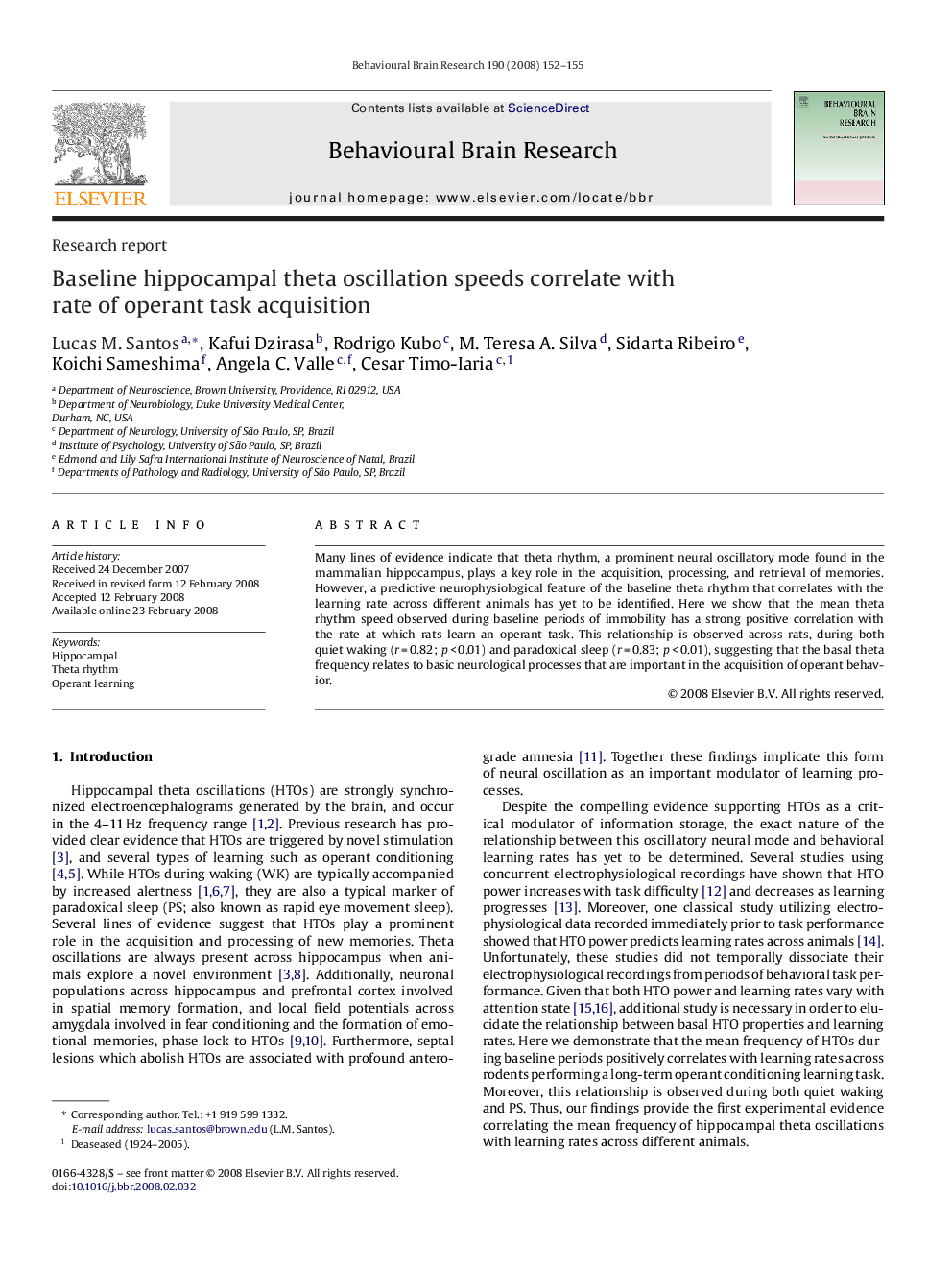| Article ID | Journal | Published Year | Pages | File Type |
|---|---|---|---|---|
| 4315243 | Behavioural Brain Research | 2008 | 4 Pages |
Many lines of evidence indicate that theta rhythm, a prominent neural oscillatory mode found in the mammalian hippocampus, plays a key role in the acquisition, processing, and retrieval of memories. However, a predictive neurophysiological feature of the baseline theta rhythm that correlates with the learning rate across different animals has yet to be identified. Here we show that the mean theta rhythm speed observed during baseline periods of immobility has a strong positive correlation with the rate at which rats learn an operant task. This relationship is observed across rats, during both quiet waking (r = 0.82; p < 0.01) and paradoxical sleep (r = 0.83; p < 0.01), suggesting that the basal theta frequency relates to basic neurological processes that are important in the acquisition of operant behavior.
